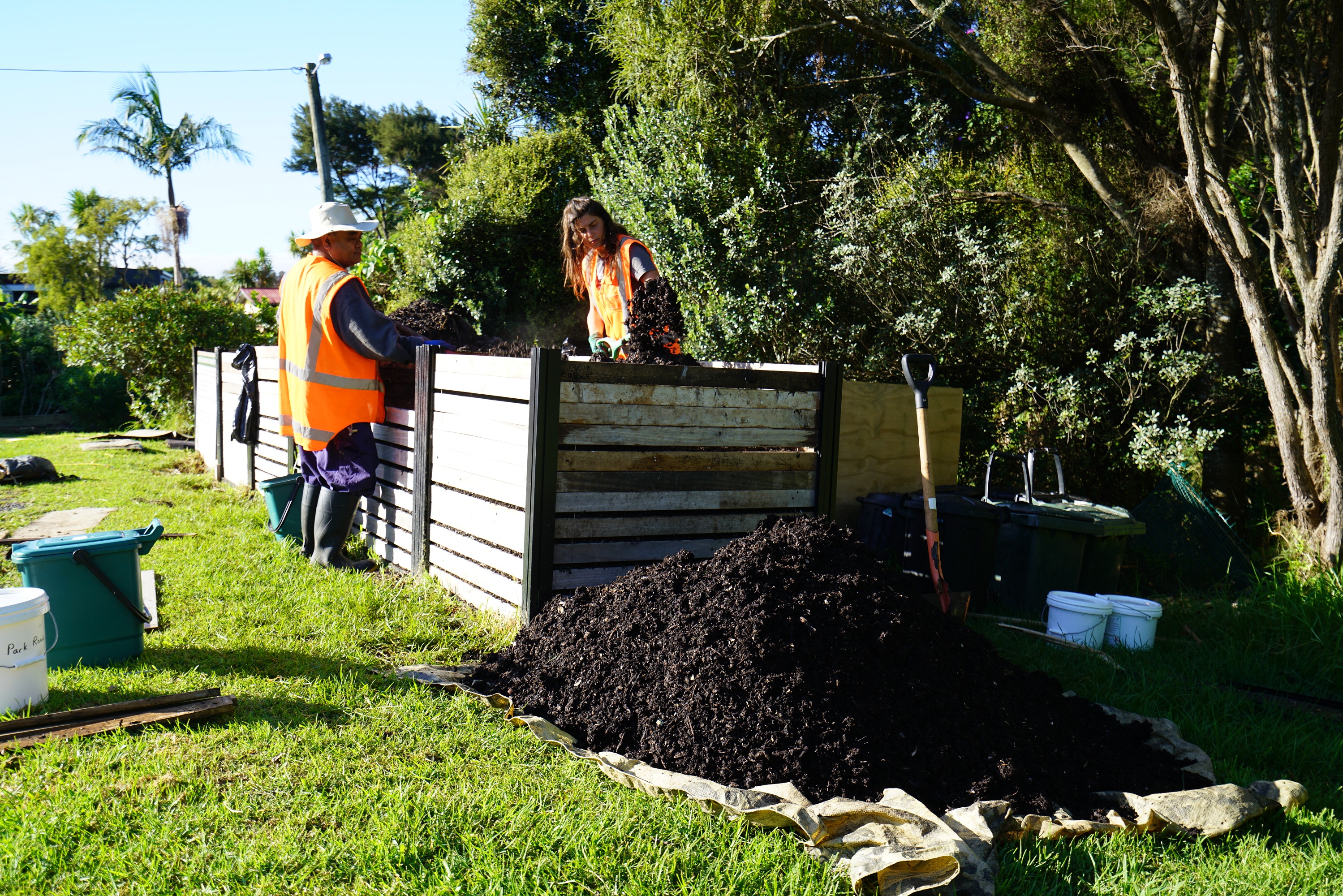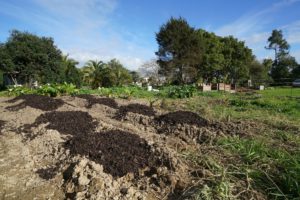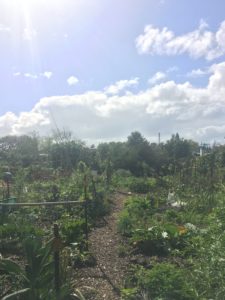Below is the speech I delivered to the Auckland Council Waste Minimisation and Management Panel regarding their Waste Management and Minimisation Plan for the city. The original plan stated that the Council is looking to provide a kerbside collection of residential food scraps, then truck that out of the city to be put through anaerobic digester machines. Go Well Consulting is in agreement that the council provides a kerbside collection but strongly opposes the use of anaerobic digesters. See below for all the detail.
Auckland Council Presentation
Kia ora and thank you for allowing me a chance to speak to you all today.
I’m Nick Morrison and I recently started my own sustainability consultancy with a real passion to help New Zealand become a world leader in the transition to a circular, regenerative and fairer economy. I am also the sustainability consultant behind the current behavioural change campaign ‘Bags Not’ which is targeting plastic pollution, beginning with the plastic bag.
I would like to thank the Council for wonderful work you have done to date and the leadership you are showing in transitioning Auckland towards the circular economy and becoming the world’s most liveable city. It’s a massive task and requires very strong and intelligent leadership. So thank you for that.
I also commend the council and am very excited by, your commitment to C40 Cities. For those who don’t know ‘C40 is a network of the world’s megacities focused on tackling climate change by driving urban action that reduces greenhouse gas emissions and climate risks while increasing the health, wellbeing and economic opportunities of urban citizens.”
We are living in an unprecedented time of human history. Never before has our species had to change so much, so quickly, and on such an enormous scale to ensure our survival on this Pale Blue Dot.
I believe all of us here today are well aware of the seriousness of our situation, and the massive threats we face from climate change, plastic pollution, and diet-related illness. And we all know how we got to this place. We live in a linear economy. One in which we extract resources from the biosphere at great exploitation of the environment, make products at great exploitation of people and communities, and then we dump those products at further exploitation of the environment and communities.
It is also an economic model that has caused the disconnection of communities, most notably through the development of large-scale shopping malls surrounded by concrete, the decline of public health, especially for the poor, the loss of and endangering of our native species, the loss of and continuing negative impacts on our natural ecosystem, and the destruction of our soils with the use of synthetic fertilisers and monocropping which is now resulting in the loss of 190 million tonnes of topsoil every year.
We are in this position because in line with the linear economy, we centralised everything. We centralised our food growing, we centralised our shopping centres, and we centralised our waste management.
And that is the legacy of the councilors who came before you.
But I want this Council to now imagine a very different Auckland City.
I want you to imagine an Auckland City where there is no plastic pollution, no diabetes or obesity, an Auckland city that has safe connected communities and a thriving ecosystem that is acting as a carbon sink.
And I want you to imagine an Auckland city that is functioning within a circular, regenerative economy. One in which there is no waste, there is security in the food supply, there is community involvement in the growing of their food and composting of their food scraps, and hundreds of meaningful jobs are created.
Again I cite C40 Cities.
“Forward-looking cities are already going further and planning the transition to a fully “circular economy,” which shifts resource consumption from linear flows (raw materials to consumption to disposal) to continuous reuse. A circular economy integrates waste management with manufacturing processes and consumer life, ensuring that products and services are designed for reuse from the beginning and providing seamless connections to collect and redistribute materials.’”
So how does this relate to the Waste Minimisation and Management Plan?
I am proposing a decentralised, community based hot composting model to manage Auckland’s organic waste.
Now before I go on I must take this moment to make a really really important point that if nothing else you take away from my talk you take away this most fundamental point. Organic waste IS NOT WASTE. It is the most valuable of resources. And I strongly advise that the council changes all it’s language on every internal and public report and publication from organic waste to organic resource. Or even ‘organic matter’ if you wish, or maybe ‘food scraps’, or one of my favourites, ‘soil food’. But to use the term “waste” when discussing this most precious resource is a massive error that sets up a way of thinking that has seen it being treated as a problem and transported great distances to be dumped into landfills where it is toxified and squashed into an environment with no oxygen causing the release of methane and the creation of toxic leachate, and more disastrously the loss of precious nutrients.
And this is one of the fundamental flaws I see in the Waste Management and Minimisation Plan. It seems that because it has been referred to as “organic waste” the council is treating it as a problem that simply needs to be diverted from landfill, and completely missing the massive opportunity that is sitting in front of the council to use this resource to restore the cities public and environmental health.
Anyway, back to the community hot composting model.
How will it work?
- Hundreds or even thousands of hot composting sites will be set up across the city using a beautifully designed, rat-proofed, leachate free composting design that is unique to New Zealand.
- Food leftovers are collected weekly by electric vehicles or bicycles as it is currently done by Cultivate Christchurch, Kai Cycle in Wellington or as it is soon to be done by Kelmarna Gardens here in Auckland thanks to a generous WM grant from the Council.
- All food scraps including meat, fish, and bones alongside all garden clippings can be collected and composted within a few kilometres or even metres from where it was collected. Further to this all certified compostable packaging can be composted creating huge opportunities to help eliminate our urban trash.
- Each of these community compost sites will be managed by a certified and trained compost expert who will ensure safety, ensure that all pathogens and weeds seeds are destroyed and ensure the best possible compost is produced and contamination is minimised.
- These community composting sites will be set up in schools, to educate our children with the skills they will need for the rapidly changing world, as well as in community hubs such as churches, rugby clubs, maraes, and community gardens. Then also in multiple dwellings, retirement villages, council parks, businesses, hospitals and even private homes.
- Then where appropriate food gardens will be set up so Auckland communities are supplied with an abundance of rich nutritious fruit and vegetables grown from rich and nutritious soils fed by the best compost that can be made. This will be food grown to provide sustenance and nutrition, not grown to travel long distances and look good under fake light.
- Then any surplus compost will be used to restore the Cities soils. Helping the soils hold more water when it rains and therefore decreasing surface flooding, land erosion and stormwater surges (which we all now will increase with a warming world and the corresponding change in the water cycles). Healthier soil will also improve the health of our trees, shrubs, and bushes, which in turn will help clean our rivers, streams and oceans. Perhaps in 10 years or so we may even be able to swim in the ocean when it rains in Auckland. Imagine that!
Now, this idea is not novel C40 Cities is well aware of this game-changing restorative model to dealing with our organic resource. They have this to say about it in their Focused Acceleration Document. “Recycling and organic-waste processing systems are often well suited to district-scale implementation, with the potential to create local jobs and improve neighborhood resilience.”
They go on to say this in the same report
“Innovative models for waste management can help cities rethink their need for traditional collection and disposal infrastructure and provide immediate benefits to the community as well as reducing greenhouse gas emissions. For example, community-based composting plants in Dhaka employ citizens to collect waste door-to-door by rickshaw bicycle systems and to separate organic waste from other items, providing income to poor residents, especially women. The compost product is sold to fertilizer companies and supports soil health for regional agriculture.”
So let’s look more closely at some of the advantages to Auckland Council adopting this community hot composting decentralised model:
- Increased carbon sequestration across the city
- Increased community and resident involvement
- Increased community resilience through the diversity and proximity of the food supply
- Widespread education on the composting process and how to grow food
- Decreased big trucks on the road
- Decreased compost miles
- Meaningful job creation. And I stress that. These are meaningful jobs that give mana and purpose to those who are working for their communities.
- Strengthened local economies
- Increased natural and social capital
- Ability to fluctuate the service, number of composting sites, and size of composting sites in line with population growth and changes to the amount of organic resource that is available for composting.
- And no need to be locked into a 20-year contract
On Monday you will hear from others who share this vision for Auckland city and who will go into more detail than I can about the impacts this will have on the cities soil health, pollinator health, health of the general ecosystem, and the mental and physical health of Aucklanders.
So, What do we need to make this happen
First, we need to make sure Auckland Council does not sign a contract to truck this incredibly valuable resource out of the city and strip carbon from it to make methane to burn for the next 20 years. I ask you this if we as a city are not returning our organic resource or compost to our soils, how are we feeding our soils?
Secondly, we need a commitment from the council to trial a decentralised community-based model so comparative data can be obtained to other trials that have been conducted regarding Auckland’s organic resource.
Thirdly we need that trial to be supported by an innovate, open-minded, brave and curious council. A council that believes in a better, more connected, more secure, circular future.
And although I thank you again for the work you have done to date, and the commitments you have made. I would like to finish by citing your Chief Sustainability Officer -John Mauro. Who in turn quotes Brent Toderian.
“Yet the single most effective ‘right call’ is to put our money where our mouths are. Our friend and renowned urbanist Brent Toderian says, “The truth about a city’s aspirations isn’t found in its vision. It’s found in its budget.”
Thank you.
Any questions?





